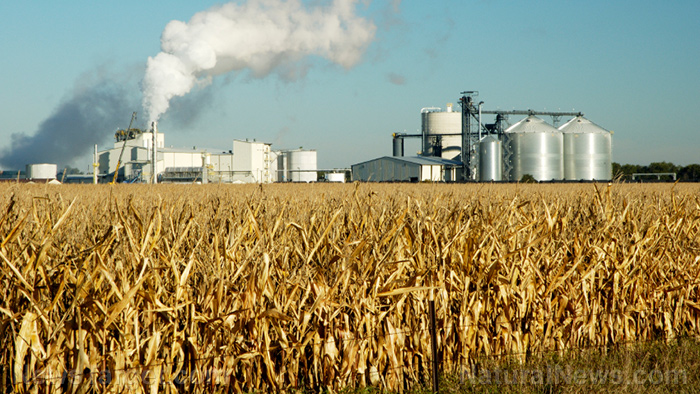UK move to increase ethanol biofuel use could lead to increased deforestation
03/10/2021 / By Franz Walker

An announcement by the U.K. government that it would double the amount of ethanol that can be blended into gasoline from 5 percent to 10 percent could cause as much harm as good.
The claim comes from the non-governmental organization Transport & Environment (T&E) who says that it flies in the face of overwhelming evidence that biofuels are not part of the solution to decarbonize cars and other vehicles on the road.
The group pointed out that only 18 percent of the ethanol used in the U.K. was produced domestically, with the rest imported. As such, any move to increase the amount of the biofuel in gasoline in the country would require more land, including those earmarked for new forests.
“This knee-jerk reaction from the Secretary of State for Transport fails to consider the multiple competing uses for land in the UK, including plans for new forests and more sustainable agriculture,” said Greg Archer, U.K. director of T&E.
Government aware of biofuel production’s negative impact
Authorities have known that biofuel production has links to deforestation for some time now. In 2015, the European Parliament passed a vote to place a cap on biofuels derived from edible crops.
Back then, proponents of the cap successfully argued that biofuel production from edible crops not only competed with food production but also contributed to deforestation and released unacceptably high levels of greenhouse gas emissions.
“Let no one be in doubt, the biofuels bubble has burst,” said Robbie Blake, a campaigner from the Friends of the Earth Europe, in response to the cap. “The EU’s long-awaited move to put the brakes on biofuels is a clear signal to the rest of the world that this is a false solution to the climate crisis. This must spark the end of burning food for fuel.”

In addition, studies showed that deforestation linked to biofuel production for Europe might have also led to other issues. These included land conflict, labor issues, and indigenous right issues in places as far away as Indonesia, Brazil, and Tanzania. (Related: Producing biofuel from plants uses more energy than it produces.)
With only a small portion of the U.K.’s biofuel use coming from domestic sources, the worry is that an increase to E10 – fuels with up to 10 percent ethanol — would exacerbate these issues.
Mothballed local biofuel plant possible solution, but questions remain
One of the proposed ways to help increase domestic ethanol production in the U.K. is the reopening of the mothballed Vivergo Fuels ethanol plant in Salt End in the northeast of England. Originally opened in 2007, the plant was closed in 2018 after a troubled year that saw a four-month-long production halt.
Back then, Vivergo Fuels decided to close the plant due to the perceived lack of pace by the U.K. government to introduce E10.
The new announcement by the U.K.’s Secretary of State for Transport changes that, bringing E10 fuel into the United Kingdom.
But T&E contends that there is still the question of whether the reopening of the Vivergo plant, as well as the expansion of the Ensus biofuels plant in Wilton, would be able to meet supply.
Archer points out that other factors were also at play in the Vivergo plant’s closure. These include feedstock prices and the U.K.’s weather itself. In the past, these increased the price of domestically produced ethanol, making imports more competitive.
“If the Vivergo facility remains uncompetitive, the additional demand for biofuels will be overwhelmingly met by imports, including more sugar cane ethanol from Latin and South America, which accelerate deforestation of that region,” stated Archer.
“The government has correctly identified electric cars powered by renewable North Sea wind as the way to decarbonize vehicles,” he adds. “The limited amounts of waste and residue-based biofuels available should be directed towards planes not petrol tanks.”
Follow NewEnergyReport.com for more news on biofuels and other renewable energy sources.
Sources include:
Tagged Under: alternative fuel, BioFuel, Clean Energy, clean fuel, deforestation, Ensus biofuels, environment, ethanol, green energy, UK, United Kingdom, Vivergo Fuels





















